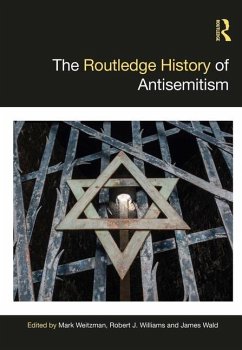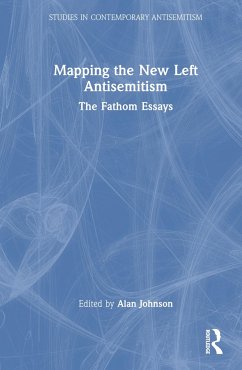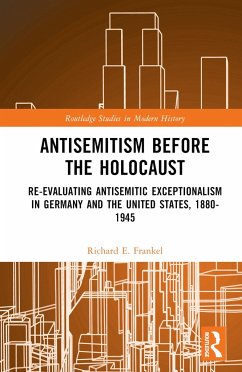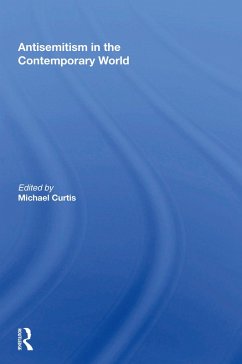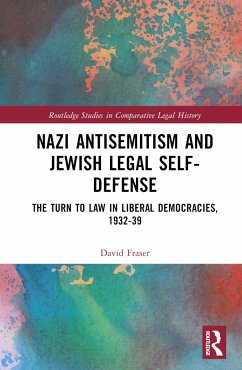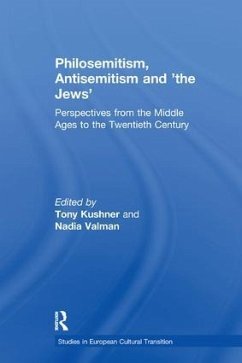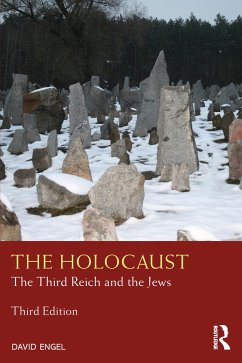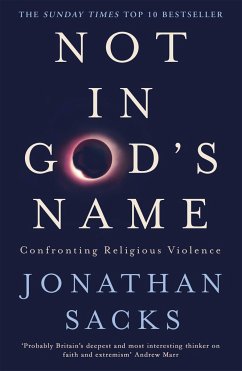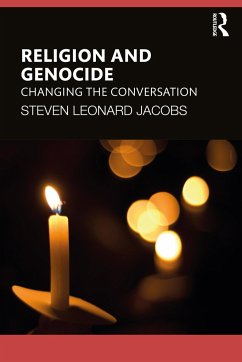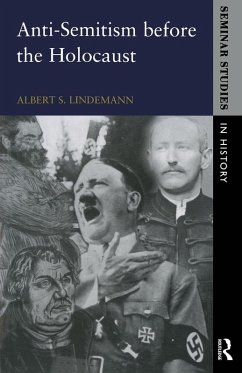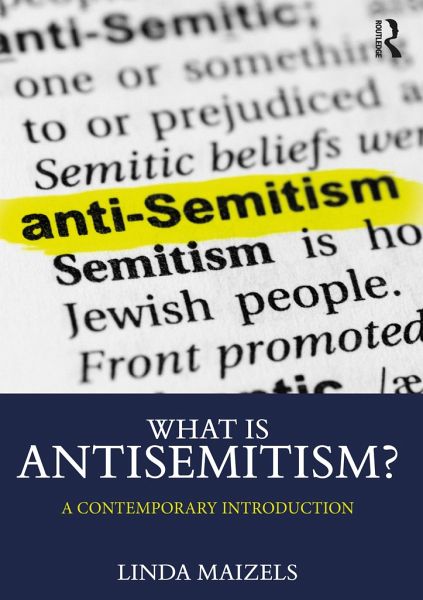
What is Antisemitism?
A Contemporary Introduction
Versandkostenfrei!
Versandfertig in 6-10 Tagen
41,99 €
inkl. MwSt.
Weitere Ausgaben:

PAYBACK Punkte
21 °P sammeln!
In October 2018, a white supremacist murdered eleven Jewish worshipers and wounded six others at the Tree of Life Synagogue in Pittsburgh, Pennsylvania, the deadliest attack on Jews ever perpetrated in the United States. The gunman's motivation to kill Jews stemmed from his belief that Jews were committing "genocide" against white Americans. Although his animosity was motivated by a racial conception of Jews, the attack took place in a house of worship, illustrating the complex and interlocking web of anti-Jewish hatred based on race, ethnicity, nationality, religion, economic issues, and cons...
In October 2018, a white supremacist murdered eleven Jewish worshipers and wounded six others at the Tree of Life Synagogue in Pittsburgh, Pennsylvania, the deadliest attack on Jews ever perpetrated in the United States. The gunman's motivation to kill Jews stemmed from his belief that Jews were committing "genocide" against white Americans. Although his animosity was motivated by a racial conception of Jews, the attack took place in a house of worship, illustrating the complex and interlocking web of anti-Jewish hatred based on race, ethnicity, nationality, religion, economic issues, and conspiracy theory that is commonly referred to as "antisemitism."
What is Antisemitism? provides a detailed overview of this complex topic. It offers a history of anti-Jewish animosity from antiquity to the present; a discussion of the difficulties of defining antisemitism - arguably one of the most contentious issues in the contemporary discourse on the subject - and three case studies illustrating the diverse and wide-ranging nature of the phenomenon in the present-day, including examples from the political far right, the political hard left, and radical Islamism.
With suggestions for further reading, and a chronological structure, this volume is an accessible and essential student textbook.
What is Antisemitism? provides a detailed overview of this complex topic. It offers a history of anti-Jewish animosity from antiquity to the present; a discussion of the difficulties of defining antisemitism - arguably one of the most contentious issues in the contemporary discourse on the subject - and three case studies illustrating the diverse and wide-ranging nature of the phenomenon in the present-day, including examples from the political far right, the political hard left, and radical Islamism.
With suggestions for further reading, and a chronological structure, this volume is an accessible and essential student textbook.





